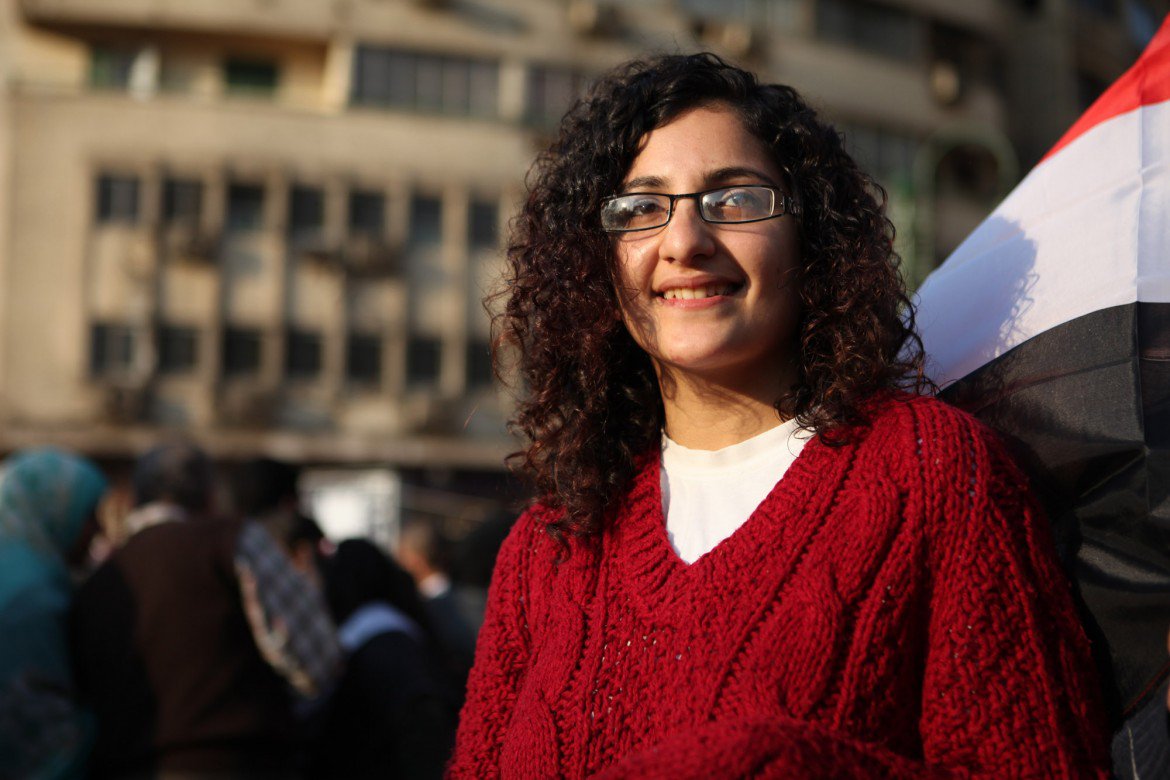Mona Seif, the Egyptian activist who came to prominence during the 2011 revolution, is part of a large family of socialists. Her siblings, Alaa Abd El-Fattah and Sanaa Seif, are among the most significant activists of the Arab Spring. Alaa is still in prison, and Sanaa was released after a year in prison after participating in a demonstration near the presidential palace in Heliopolis in 2013. Seif’s aunt, Ahdaf Soueif, is one of the best known and respected Egyptian writers. Seif herself, with whom we recently spoke by phone, is one of the founders of the campaign No to Military Trials for Civilians.
When did you learned of the death of Giulio Regeni, the Italian researcher who disappeared Jan. 25?
I found out after two days. A friend came to ask if we had news of a disappeared foreigner. The decision of his family and friends was to keep the incident secret and only communicate with the Italian Embassy to shed light on the events through the Egyptian authorities.
Is that a standard practice?
In cases of enforced disappearance it’s up to the people closest to the disappeared to determine whether to make a public complaint or not. It is a private decision that only the most intimate can make. Many prefer to keep things hidden, waiting for the water to calm and in the meantime allow the embassy and State Security to see if they were found dead or are seriously injured and hospitalized.
What did you think when the discovery of Regeni’s corpse was announced?
I was shocked. I tried to read up to understand who he was. I immediately felt a collective responsibility for what happened. We should have prevented it. I then thought about the agony of the parents, to come to a foreign country and return to Italy with their son’s body.
Is he thought to have been killed because he was a foreigner?
I don’t know. Events and deaths are now confused, and identifying those responsible is increasingly complex. There are so many missing persons cases. This happens not because of their political commitments but because the police are outside the control of the state. By now, the police must have received special orders because torture has stopped. It is possible that they have initially detained him only because he was a foreigner.
Yesterday you appealed to foreigners not to travel to Egypt. Why?
There are summary arrests constantly. If somebody hears about two non-Arab people they warn the police saying they are spies. And these arrests may end up in detention and torture, as happened with Giulio. The day before an American was stopped and accused of spreading false news.
What was the atmosphere on the streets of Cairo on the night of Jan. 25, when Giulio was taken?
There were no major events but many activities. There was a large police deployment. How is it that a foreigner was arrested by chance and killed in such a way on the day that, in theory, the city was supposed to be safer than ever?
Do you believe the objective was to nab a scholar who deals with workers’ rights.
Yes, but it could be too simplistic an explanation. There are activists, known during the revolution of 2011, who were only just now arrested or disappeared. I am following the case of Mustafa Massouni, of whom there has been no news for a long time. There have been periods when every young person between 15 and 30 years walking around Tahrir Square was arrested.
After targeting the Islamists, is the government now turning to socialists and communists?
I think the goal is to strike anyone capable of mobilizing protests. The aim is to silence anyone working from the grassroots. This includes both the Islamists and the left. For example Mahienour El-Massry is an activist who is outside their control for her work with migrants, students and workers. My brother Alaa was always in the crosshairs for his radical critique of the system. But those also affected are young people opening NGOs for the defense of children’s rights. Any platform that allows people to organize must be stopped.
How is it that society can take back any control at a time when President al-Sisi has unlimited power?
The balance of power is on [the government’s] side. But al-Sisi knows he has set a record for massacres. People do not respect him. They have power and they control the judiciary, but they cannot silence the people with bloodshed. They would like to control everything, but they’re unsuccessful. The situation is getting worse, the inequalities are aggravated, the police apparatus is out of control. Now doctors are even under fire. They have suffered attacks by police, and so the union of doctors has launched new strikes. This shows once more that the military has the power but not control.

